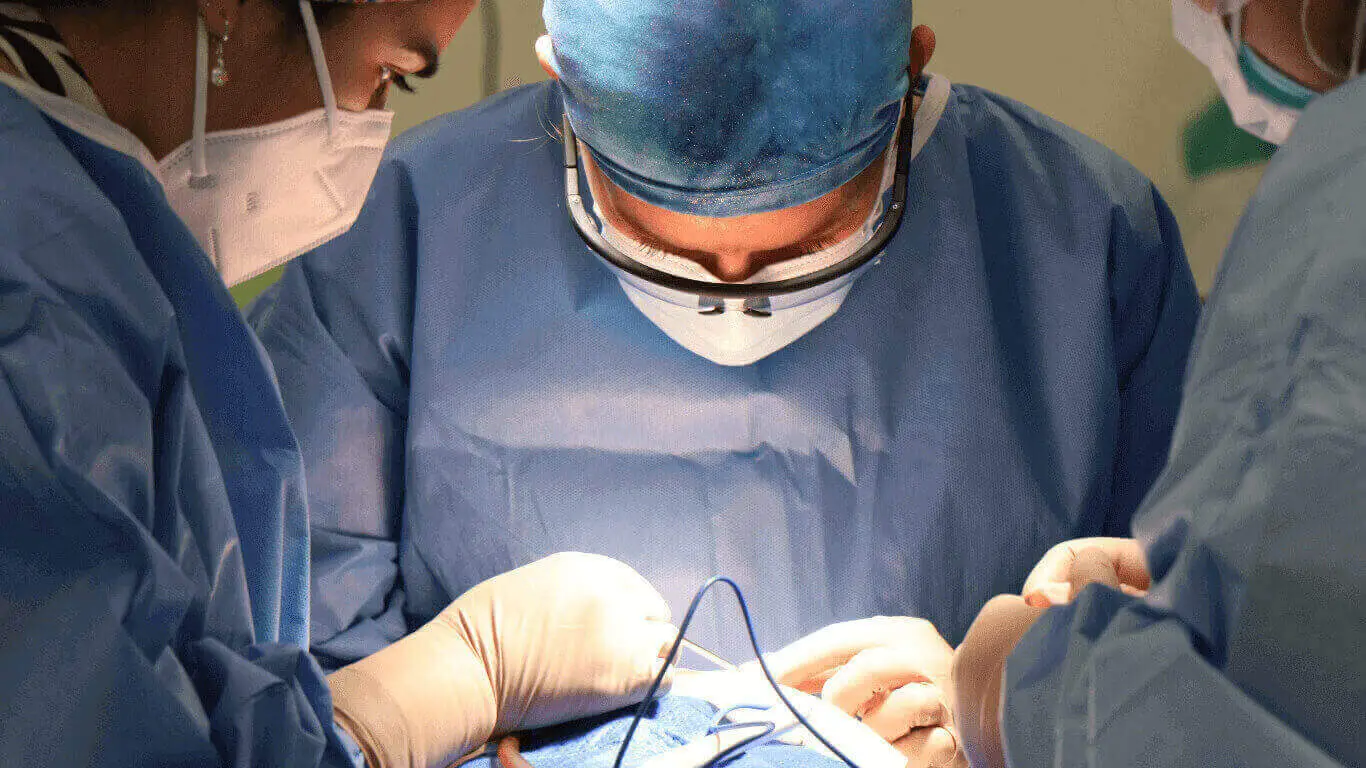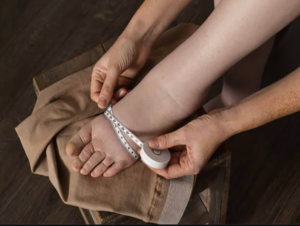How to Find the Best Professional Lymphedema Surgeon Near You: Skills, Experience, and Credentials
Lymphedema is a complex condition that requires expert care, especially when surgery is necessary. The surgeon you choose plays a significant role in the success of your treatment. This guide will help you understand the key skills, experience, and credentials a qualified lymphedema surgeon must have to ensure the best outcomes. Selecting the right surgeon is critical to managing and potentially curing your lymphedema.
Understanding the Skills Required for Lymphedema Surgery
Mastery of Supermicrosurgery Techniques
Lymphedema surgery is not your average surgical procedure. It involves super microsurgical techniques that require extraordinary precision and control. Procedures like lymphovenous bypass (LVB) and vascularized lymph node transfer (VLNT) involve connecting tiny lymphatic vessels and veins—often smaller than 0.8 millimetres in diameter. This level of detail requires years of specialized training and experience. Surgeons skilled in super microsurgery can perform these delicate procedures accurately, offering patients the best chance at long-term success.
Advanced Understanding of Lymphatic Anatomy
A deep understanding of the lymphatic system is crucial for any lymphedema surgeon. While general surgeons may have basic knowledge of the lymphatic system, true specialists have in-depth expertise beyond general training. This advanced understanding allows lymphedema surgeons to tailor surgical procedures to individual patients, optimizing outcomes by addressing the specific areas where lymphatic fluid is blocked or impaired.
Why Experience Matters in Lymphedema Surgery
Your Attractive Heading
Volume of Surgeries Performed
Experience is essential when it comes to lymphedema surgery. Surgeons who perform these procedures regularly are more familiar with the nuances of each case and have better-developed surgical skills. Ask your surgeon how many lymphovenous bypass or lymph node transfer surgeries they have completed. A higher volume of surgeries indicates greater proficiency and a better likelihood of successful results.
Track Record of Success
A surgeon’s track record is just as important as their experience. Before choosing a surgeon, ask about their success rates and review any available patient testimonials or case studies. Surgeons with a strong history of successful outcomes will have patients who have experienced significant improvements in their condition, including reduced swelling, increased mobility, and a better quality of life. Success in lymphedema surgery is measured not only by technical proficiency but also by long-term patient satisfaction.
The Credentials to Look for in a Lymphedema Surgeon
Subspecialty Training in Lymphedema Surgery
While many surgeons may offer lymphedema surgery, not all have the subspecialty training to perform these procedures effectively. A lymphedema surgeon should have completed advanced clinical training in lymphedema surgery, ideally in a fellowship program dedicated to this condition. Surgeons like Dr Jeremy Sun, who trained at the Supermicrosurgery International Lymphedema Center in Tokyo under world-renowned expert Dr Takumi Yamamoto, have undergone intensive training that equips them to handle even the most complex cases.
Board Certification and Membership in Professional Organizations
Board certification in plastic or reconstructive surgery is another important credential. Board-certified surgeons have met rigorous education, training, and ethical conduct standards. Additionally, surgeons who are members of professional organizations such as the Singapore Association of Plastic Surgeons or fellows of the Chapter of Plastic Reconstructive and Aesthetic Surgery, Academy of Medicine Singapore demonstrate their commitment to staying current with the latest advancements in their field.
Commitment to Continuing Education
Medicine is a constantly evolving field, and lymphedema surgery is no exception. The best surgeons are committed to continuing education, regularly attending conferences, participating in training courses, and staying updated on the latest techniques and technologies. This commitment ensures that their patients benefit from the most current and effective treatments available.
What to Expect During a Lymphedema Surgery Consultation
A Detailed Assessment of Your Condition
A qualified lymphedema surgeon will begin by thoroughly assessing your condition. This includes a physical examination, a review of your medical history, and potential imaging studies such as lymphoscintigraphy or magnetic resonance lymphangiography (MRL) to map out the affected areas of your lymphatic system. The surgeon should take the time to explain the results of these tests and discuss your surgical options in detail.
A Personalized Treatment Plan
Every case of lymphedema is unique, and a skilled surgeon will create a personalized treatment plan based on your specific needs. This plan may involve conservative therapies like manual lymphatic drainage (MLD) and compression garments in conjunction with surgery. The surgeon should explain how the chosen surgical procedure—lymphovenous bypass, vascularized lymph node transfer, or another technique—fits into your overall treatment strategy.
Transparent Communication About Risks and Benefits
Any surgical procedure comes with risks, and lymphedema surgery is no different. A qualified surgeon will communicate clearly and transparently about the potential risks and benefits of surgery and the likelihood of success. They should also discuss the expected recovery process and guide how to prepare for surgery and what to expect during the healing period.
Why Early Detection and Intervention Matter
The Advantages of Early-Stage Surgery
Lymphedema is a progressive condition, meaning that it gets worse over time if left untreated. Early detection and surgical intervention can prevent the condition from advancing to more severe stages. Surgical procedures like lymphovenous bypass are most effective when performed early, as they can help restore lymphatic flow before significant damage occurs. Patients who undergo early surgery often experience better outcomes, including a reduced reliance on compression garments and improved limb function.
The Role of Screening in Successful Treatment
Screening plays a critical role in the early detection of lymphedema. Individuals who have undergone cancer treatments, particularly those involving lymph node removal or radiation, should be regularly screened for lymphedema. Early diagnosis allows for prompt treatment, which can significantly improve the chances of success. Dr. Jeremy Sun emphasizes the importance of routine screenings and encourages patients to seek early intervention to maximize their chances of long-term relief.
How to Find the Right Lymphedema Surgeon for You
Asking the Right Questions
Finding the right lymphedema surgeon begins with asking the right questions. During your consultation, inquire about the surgeon’s training, experience, and success rates. Look specifically at your surgeon’s credentials and certificates. Ask them how often they perform lymphedema surgeries and which procedures they recommend for your specific condition. It’s also important to feel comfortable with the surgeon and confident in their ability to provide the care you need.
Why Dr. Jeremy Sun Is a Top Choice
Dr. Jeremy Sun’s extensive subspecialty training and experience make him a top choice for lymphedema surgery. His dedicated lymphedema fellowship at the Supermicrosurgery International Lymphedema Center in Tokyo gave him advanced skills in lymphovenous bypass and vascularized lymph node transfer and a deep understanding of the lymphatic system. Dr Sun’s patient-centred approach ensures that each individual receives personalized care tailored to their specific needs, and his commitment to ongoing education means that his patients benefit from the latest surgical techniques and technologies.
Conclusion
Selecting the right lymphedema surgeon is essential to achieving the best possible outcomes. By choosing a surgeon with specialized training, extensive experience, and a commitment to patient care, you can improve your chances of long-term relief and a better quality of life. Dr. Jeremy Sun’s unique combination of skills, experience, and personalized approach to treatment makes him an excellent choice for individuals seeking advanced surgical solutions for lymphedema.





